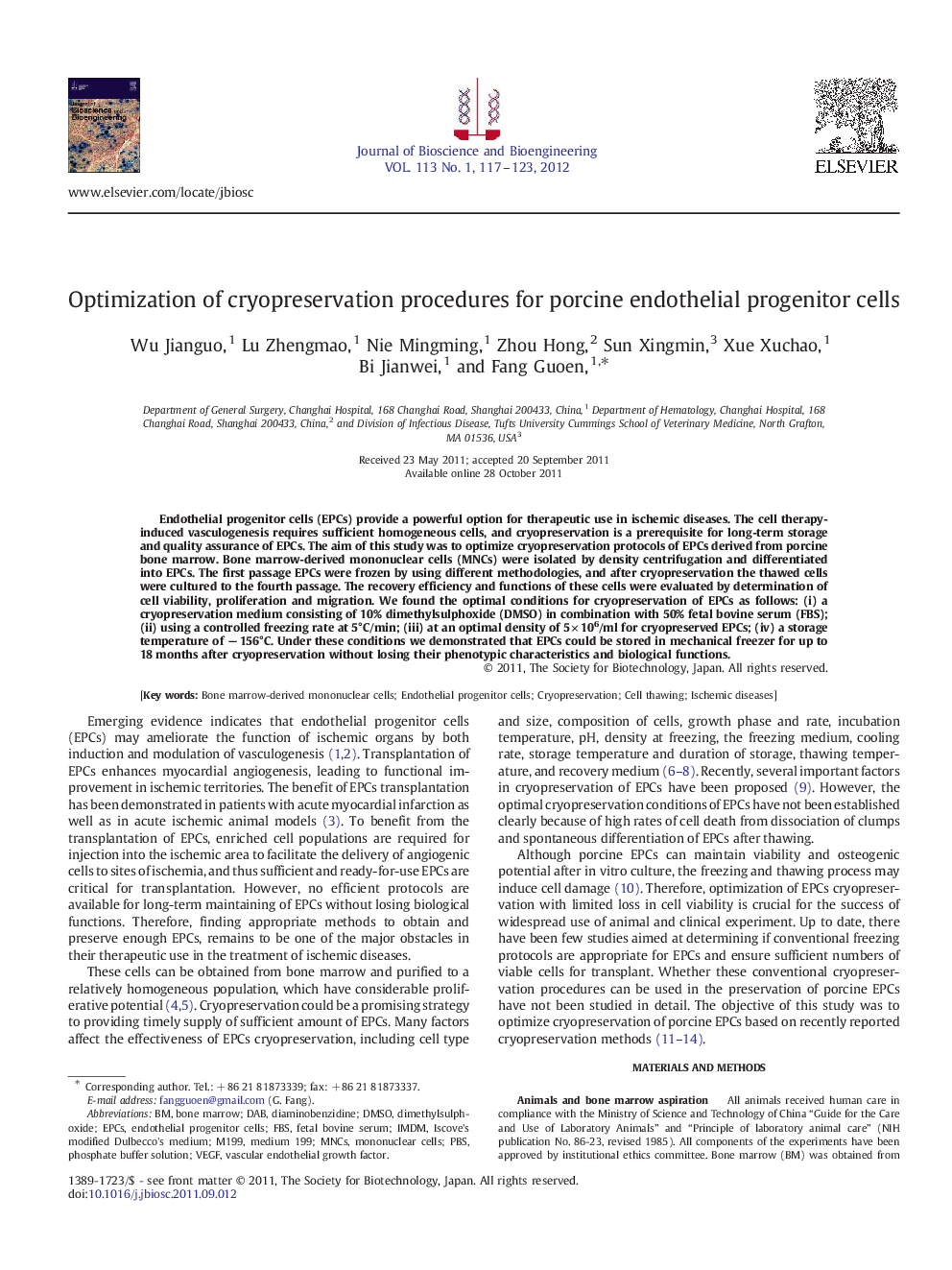| Article ID | Journal | Published Year | Pages | File Type |
|---|---|---|---|---|
| 20799 | Journal of Bioscience and Bioengineering | 2012 | 7 Pages |
Endothelial progenitor cells (EPCs) provide a powerful option for therapeutic use in ischemic diseases. The cell therapy-induced vasculogenesis requires sufficient homogeneous cells, and cryopreservation is a prerequisite for long-term storage and quality assurance of EPCs. The aim of this study was to optimize cryopreservation protocols of EPCs derived from porcine bone marrow. Bone marrow-derived mononuclear cells (MNCs) were isolated by density centrifugation and differentiated into EPCs. The first passage EPCs were frozen by using different methodologies, and after cryopreservation the thawed cells were cultured to the fourth passage. The recovery efficiency and functions of these cells were evaluated by determination of cell viability, proliferation and migration. We found the optimal conditions for cryopreservation of EPCs as follows: (i) a cryopreservation medium consisting of 10% dimethylsulphoxide (DMSO) in combination with 50% fetal bovine serum (FBS); (ii) using a controlled freezing rate at 5°C/min; (iii) at an optimal density of 5 × 106/ml for cryopreserved EPCs; (iv) a storage temperature of − 156°C. Under these conditions we demonstrated that EPCs could be stored in mechanical freezer for up to 18 months after cryopreservation without losing their phenotypic characteristics and biological functions.
► We optimize cryopreservation protocols of EPCs derived from porcine bone marrow. ► We compare different cryopreservation methodologies by using cell viability. ► EPCs are stored 18 months without losing characteristics and decreasing functions.
